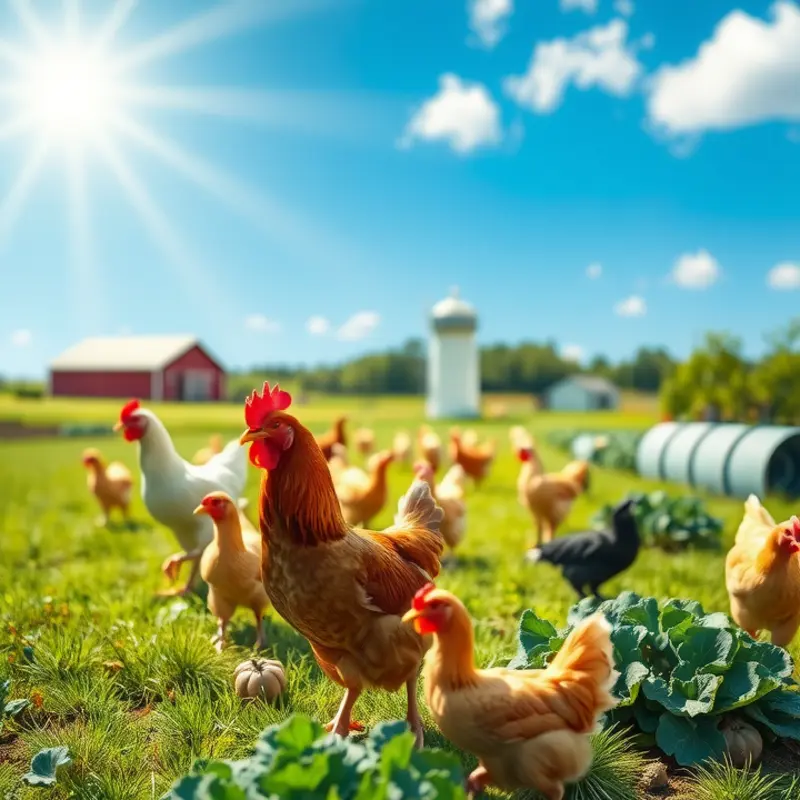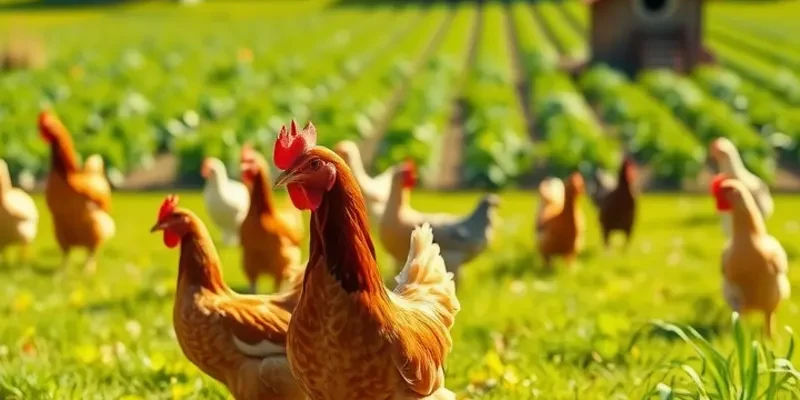Sourcing eggs ethically is not just a food choice; it’s a powerful step toward a sustainable future. With increasing awareness about animal welfare, environmental impact, and nutritional value, more people are looking for eggs that align with eco-friendly practices. By choosing ethical egg producers, we can reduce our carbon footprints, support humane farming practices, and promote biodiversity. This guide provides insights into choosing eggs that are not only good for us but also for the planet.
Understanding Ethical Egg Labels

Deciphering egg labels is crucial for making ethical purchasing decisions. The various terms such as “organic,” “free-range,” and “cage-free” might often seem similar, but they represent important differences in animal welfare and environmental impact. Understanding these differences can help consumers support sustainable practices.
The term organic implies that the hens are fed organic feed, free from synthetic pesticides and genetically modified organisms. Additionally, organic certification requires hens to have outdoor access, contributing to their overall well-being. However, the extent of outdoor access can vary, with some interpretations of the term allowing minimal external space. Despite this, organic farming aims to limit environmental damage and reduce chemical usage.
Next, we have free-range eggs, which suggest that hens have some level of outdoor access. In many cases, this means the birds can roam outside for a part of their day. However, standards can differ widely. For instance, the amount of time and space allotted for outdoor roaming can change between farms. Therefore, it’s vital for consumers to look for additional certifications from independent auditors that confirm the living conditions align with truly free-ranging practices.
Cage-free labels indicate that hens are not kept in cages, offering them more freedom compared to caged environments. However, this does not necessarily mean they have outdoor access. In some cases, cage-free hens may still be confined to large barns or indoor spaces. Thus, while the absence of cages is an improvement from traditional battery-cage systems, it doesn’t guarantee a natural living environment. It’s crucial to understand that, without additional certifications on humane treatment, “cage-free” might fall short of expectations.
Ultimately, each label provides a different level of assurance concerning animal welfare and environmental responsibility. Recognizing these differences empowers consumers to support ethically and environmentally responsible egg production. For those who value minimal environmental impact, researching brands and their specific practices can uncover options that align with personal values. For a related discussion on ethical food choices, such as incorporating sustainable alternatives into a diet, visit Keto Egg Muffins: Easy Meal Prep Breakfast.
By understanding these distinctions, consumers can make informed choices that reflect their commitment to animal welfare and environmental sustainability, fostering a more conscientious approach to egg sourcing.
The Environmental Benefits of Ethical Sourcing
Ethical egg sourcing contributes significantly to environmental sustainability by addressing core issues like carbon emissions, land use, and the implementation of eco-friendly practices. The choice to support these methods can create a tangible impact on the planet’s health and encourages a sustained effort toward responsible living.
One of the key environmental benefits of ethically sourced eggs is the reduction in carbon emissions. Conventional egg production often involves industrial-scale farming practices, which can be highly polluting. The vast amounts of energy required for these operations contribute to greenhouse gas emissions. By contrast, ethical egg farms often employ more sustainable methods, like the integration of renewable energy sources and reduced reliance on fossil fuels. Through careful management, these farms ensure that their carbon footprint is minimized, setting an example for sustainable agricultural practices across the food industry.
Land use is another critical aspect where ethical sourcing makes a notable difference. Conventional egg production frequently involves intensive farming, often leading to habitat destruction and soil degradation. Ethical egg farms, however, prioritize efficient land use that respects natural ecosystems. Practices like rotational grazing and permaculture allow the land to regenerate, encouraging biodiversity and reducing soil erosion. These methods not only preserve the environment but also improve the overall health of the agricultural landscape.
Moreover, ethical sourcing incorporates sustainable practices that go beyond mere production. These include waste management systems designed to recycle and repurpose by-products, reducing the amount of waste that ends up in landfills. Many ethical farms also engage in water conservation techniques, such as rainwater harvesting and efficient irrigation systems, to minimize water usage. This commitment to sustainability helps conserve precious natural resources while ensuring that the ecosystem is not stretched beyond its limits.
Ethical egg sourcing operates within a larger framework of responsible consumption, urging a collective shift towards decisions that prioritize the environment. By consciously choosing to purchase eggs from ethical sources, consumers help drive demand for these sustainable practices. This shift not only reduces environmental impact but also supports small-scale, local farms that prioritize the well-being of their surroundings and community.
For those inspired by sustainable practices, exploring diverse diet options can lead to a more environmentally-friendly lifestyle. An example would be incorporating keto egg muffins into meal plans, which allows for a tasty and ethical consumption of eggs (see Keto Egg Muffins).
Every decision matters, and the cumulative effect of choosing ethically sourced eggs can lead to a substantial improvement in environmental health. As consumers become more aware of their impact, their choices create a profound ripple effect on sustainability efforts worldwide.
Final words
Choosing ethically sourced eggs is a meaningful decision that impacts not just your diet but also the environment. By understanding egg labels and recognizing the benefits of ethical sourcing, individuals can play a vital role in supporting sustainable agriculture. Every small step towards purchasing ethical products contributes to a larger movement for planetary health and animal welfare. Make a commitment to sourcing your eggs responsibly and encourage others to do the same, realizing that together, we can make a significant difference for future generations.








